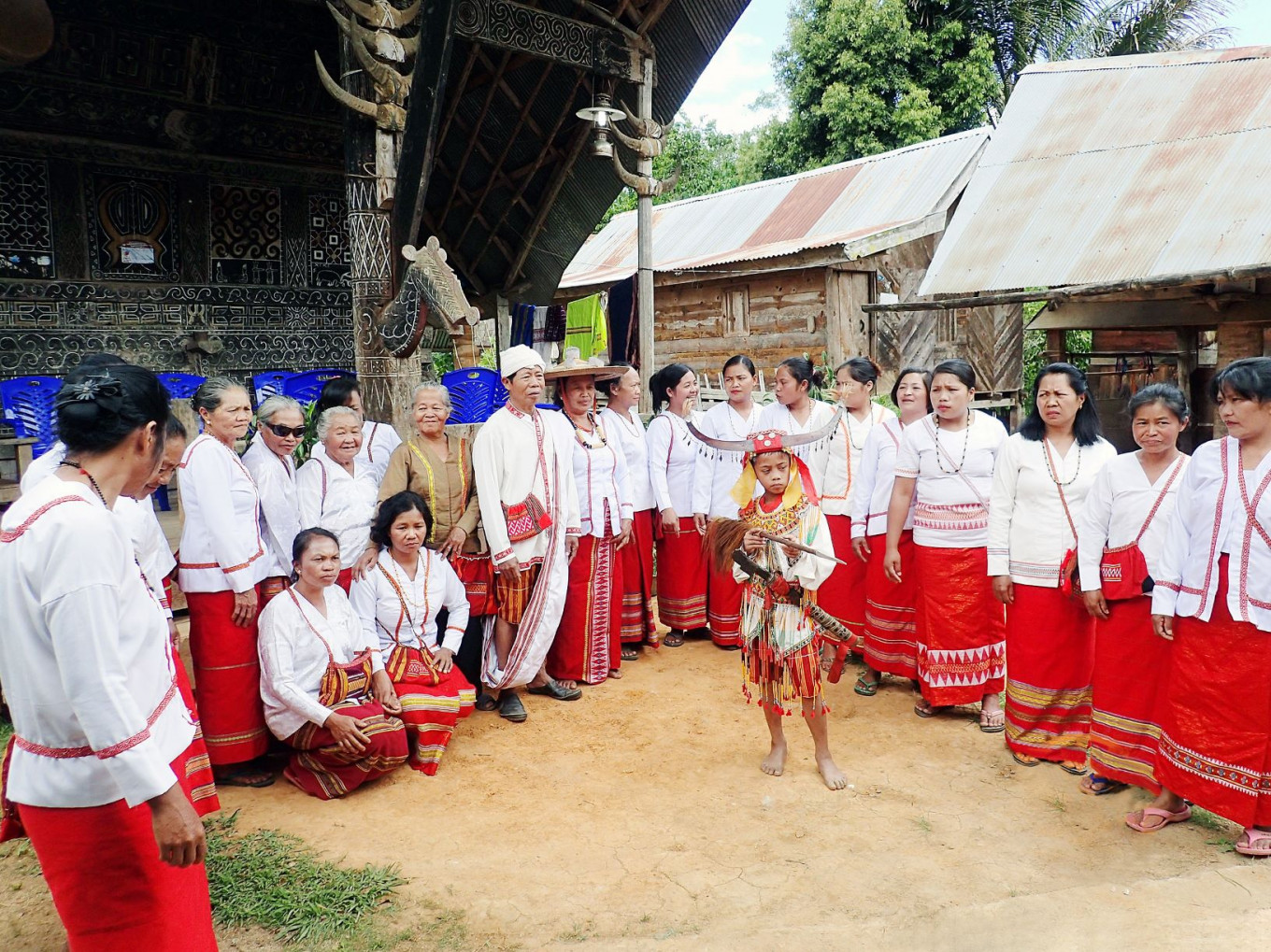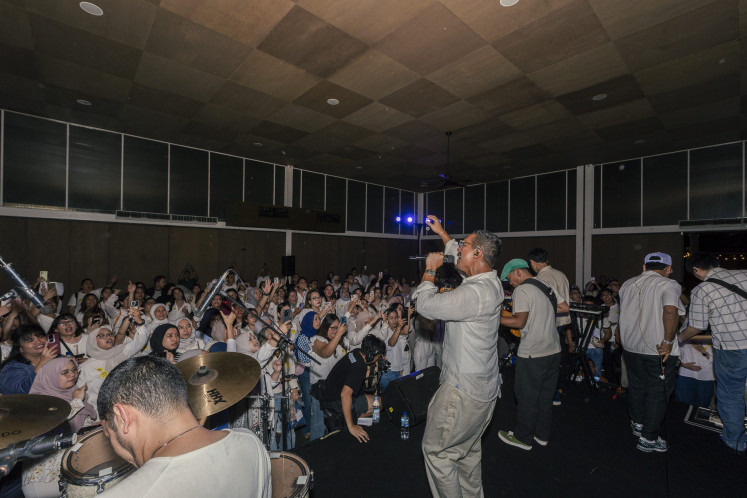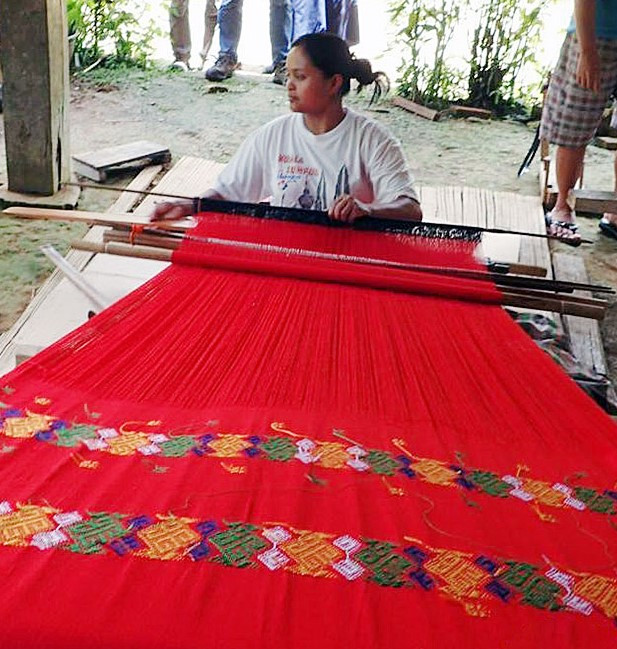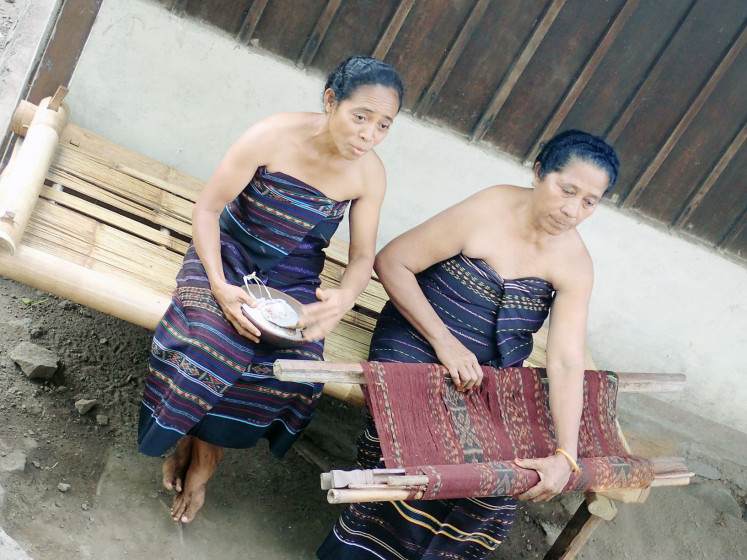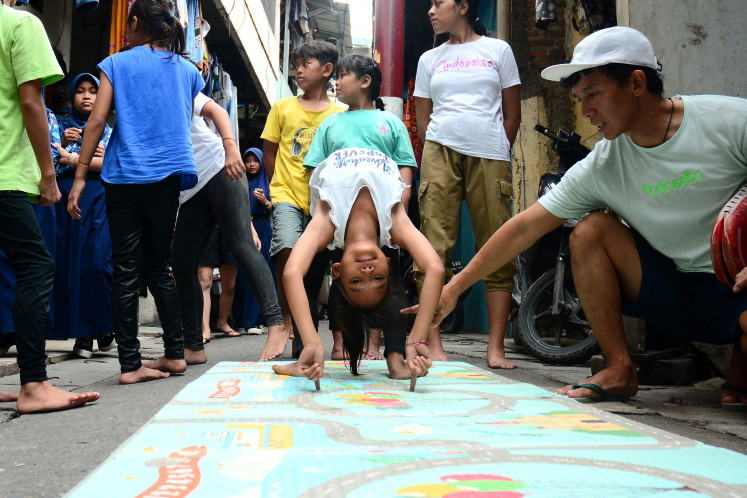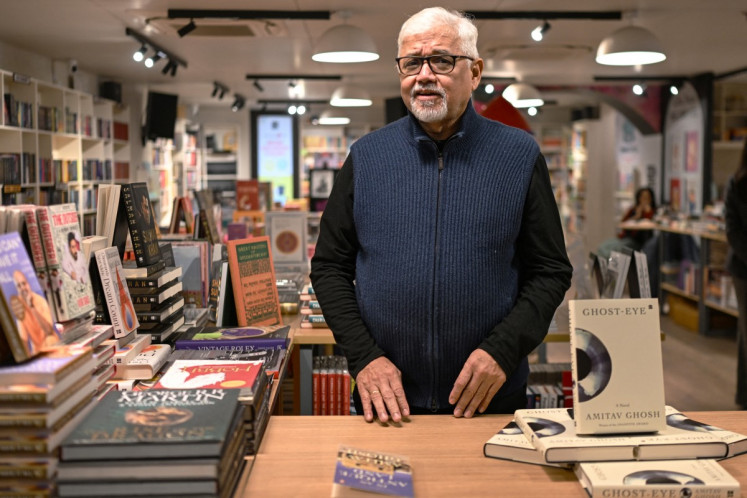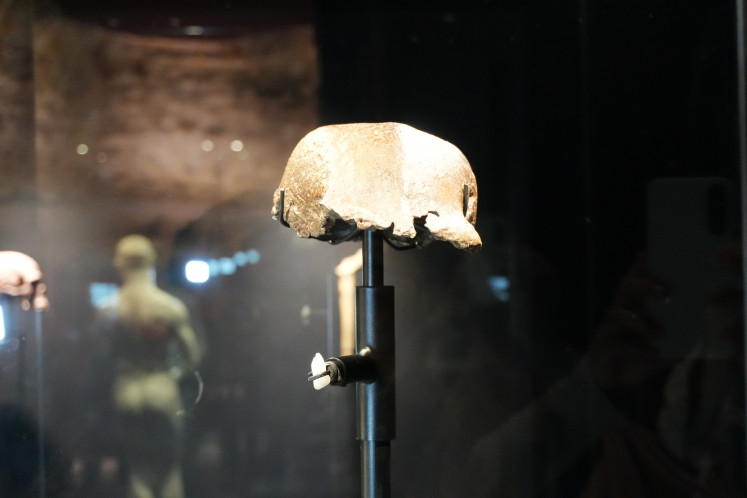Popular Reads
Top Results
Can't find what you're looking for?
View all search resultsPopular Reads
Top Results
Can't find what you're looking for?
View all search results#WITTOCorona: Toraja Melo uplifts weavers affected by pandemic
As the pandemic has affected people’s lives across the world, one social enterprise steps up to help Indonesian weavers preserve their livelihoods and the art of weaving.
Change text size
Gift Premium Articles
to Anyone
T
oraja Melo founder and CEO Dinny Jusuf and her team just completed their workshops and courses with weavers across five villages in West Nusa Tenggara and East Nusa Tenggara provinces several weeks ago, when the COVID-19 pandemic was not as widespread as it is now.
At that time, the weavers had requested that the workshops go ahead as usual, albeit with protective measures. Once the team flew home, text messages and calls started coming.
The messages of plight came from weavers she has worked with over the years, and she knew she had to lend a helping hand.
“Some of them said they were not allowed to leave their houses and that the markets had closed. They usually sell their textiles at the market once a week or someone will pick up the items at their house [but now] they have no cash on hand at all,” Dinny told The Jakarta Post over the phone from her home in Toraja, South Sulawesi.
Art of weaving: A weaver makes a traditional textile on a backstrap loom in Toraja, South Sulawesi. Toraja Melo started working with weavers in the area in 2008. (Courtesy of Toraja Melo/-)Founded in 2008, Toraja Melo originally worked with weavers in Toraja, before expanding in 2013 to include weavers in Mamasa, West Sulawesi.
In 2014, the social enterprise partnered with Women Headed Family Empowerment (PEKKA) to train weavers in Adonara, Lembata and Larantuka in East Nusa Tenggara. Some 1,000 weavers are now part of Toraja Melo’s community.
Some of the weavers in PEKKA are their families’ breadwinners, who rely on selling their tenun (handwoven) textiles at the market.
Dinny said the focus during the pandemic was on producing masks and personal protective equipment (PPE), but Toraja Melo wanted to focus on directly helping its community of weavers.
To that end, Toraja Melo on April 13 will be launching a short-term program dubbed #WITTOCorona, short for Weaving in The Time of Corona.
“The concept is very simple, in that we wanted the weavers to receive cash as soon as possible.”
Intricate: Two weavers show a handwoven textile produced using the double ikat dyeing technique in Lembata, East Nusa Tenggara. Many weavers in the region are the breadwinners in their families. (Courtesy of Toraja Melo/-)#WITTOCorona will benefit the weavers of PEKKA, as well as approximately 100 more active weavers who worked with Toraja Melo since January as part of the social enterprise’s partnership with Oxfam.
These weavers are located in five villages: Pringgasela and Sukarare in Lombok, West Nusa Tenggara; as well as one village each in Kupang, North Central Timor, and South Central Timor regencies in East Nusa Tenggara.
For the past week or so, the Toraja Melo team has been working on the standard operating procedures for the campaign to work: where the tenun textiles will be stored and how the products will be sent to Jakarta.
“We wanted to make sure that when someone wants to purchase a product, the items are ready to be delivered.”
Along with the logistics, another aspect of the program is quality control, both at the community and Toraja Melo level. It will also lower the profit margin to be slightly under market rates, just enough to cover the cost of the product and the operational costs.
Dinny said that essentially, prospective buyers would receive a tenun product sourced directly from the weavers, guaranteed to have good quality by Toraja Melo, at a price slightly cheaper than normal.
“We really want [the products] to move, so we can immediately transfer the proceeds to the weavers,” she said.
The products will be priced from Rp 500,000 (US$30.76) to Rp 3 million and will be available on Toraja Melo’s Instagram account. The reason for this is related to the timeliness of the program, Dinny says, as uploading the products to the brand’s website will take too long.
As for the campaign timeline itself, she said the team did not have an exact period for when it would end. It could be throughout the pandemic, or even when the products are sold out, as the weavers do not have access to the materials needed to create more textiles.
“Even before the pandemic, these weavers live day-to-day selling tenun at the market or at home. Once activities ground to a halt, so does their cash flow,” Dinny said.
“For us it’s like, let’s just do something, no matter how small, to help. We basically just want them to get cash as soon as possible.” (ste)

